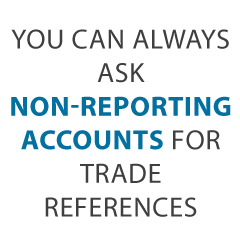Get the Truth about Unsecured Business Loans
Unsecured business loans can save you. Here’s how.
Bad credit does not have to be a dead weight around your company’s proverbial neck. However, it does make it more challenging to obtain a small business loan. For a brand-new small business in particular, your company credit will be poor as a matter of course.
This is because you just will not have the sort of history and seasoning which can make your commercial credit score rise. And, then, make lending institutions want to lend your business funds).
Hence, lenders are not going to be too thrilled about offering your business a business loan. This is because they genuinely have no clue if your small business will be able to repay the loan. But you are still, with good reason wondering how to fund a small business with poor credit.
Unsecured Business Loans: UCC Blanket Liens
As a result of this, lenders will typically obtain a UCC blanket lien in case they do give your company a loan. A UCC blanket lien is a notification which goes on your credit report. It says that the lender has an interest in all of your company’s assets until you repay the loan completely. Thus, there could be unfortunate consequences if you need to default.
Plus, most of these loans will also entail personal guarantees.
But That’s Different! What are Unsecured Business Loans?
Having said that, if a loan does not require a personal guarantee, then your small business is generally going to be looking at unsecured business loans, and those are coupled with excessive interest rates.
These sorts of small business loans can be short-term. So you must pay them back promptly. Or they can be receivables financing. And this is where you are able to get a loan based on business you anticipate to be coming in because you have due billings which your customers have not paid out to you yet. Or, they might be merchant cash advances.
These all come with interest rates which are often 40% or higher.
Advantages of Unsecured Business Loans
The biggest advantage is that you do not need to put up a personal guarantee or accept a UCC blanket lien. If you end up defaulting on the loan, then your residential property and any other personal possessions will not be seized, and neither will your inventory.
Hence the term ‘unsecured’, which effectively means ‘no collateral necessary’.
Nevertheless, this also indicates that you often have to have strong revenue or a significant amount of time in business. In general, your personal credit must be fair or better. So, that’s even without having a personal guarantee requirement.
Disadvantages of Unsecured Business Loans
It’s all about the interest. According to Nerd Wallet, Kabbage can offer an unsecured business loan – yet the APR can possibly be as much as 99%! If you think that’s usury, think again. In Ohio, the usury laws don’t apply to unsecured loans.
Time in Business Requirements
Another drawback (though not everyone will view it in this manner) is that unsecured business loans often demand that your company has been in operation for at least six months, or that you have no personal bankruptcies, or your business has to demonstrate a minimum annual earning amount – which means opening up your records to your lending institution.
If any of these requirements have already been met by you, then you possibly won’t see this as a real disadvantage.
But if your small business is brand-new, and you do not yet have a regular clientele and profit, and you have had personal bankruptcy problems, then you could be shut out of your few remaining alternatives.
Unsecured Business Loans: The Alternative: Building Business Credit
Not enough time in business? Or do you not have enough revenue? Then it’s time to start business credit building.
Every Business Needs Small Business Credit Establishing
Business credit is credit in a company’s name. It doesn’t attach to an entrepreneur’s personal credit, not even when the owner is a sole proprietor and the solitary employee of the business.
As a result, an entrepreneur’s business and consumer credit scores can be very different.
The Benefits
Considering that small business credit is distinct from personal, it helps to protect an entrepreneur’s personal assets, in case of legal action or business bankruptcy.
Also, with two distinct credit scores, a business owner can get two different cards from the same merchant. This effectively doubles purchasing power.
Another benefit is that even new ventures can do this. Visiting a bank for a business loan can be a formula for disappointment. But building company credit, when done correctly, is a plan for success.
Consumer credit scores depend on payments but also other elements like credit utilization percentages.
But for small business credit, the scores truly only depend on if a small business pays its bills on time.
The Process
Establishing small business credit is a process, and it does not occur without effort. A company will need to actively work to develop business credit.
Nevertheless, it can be done readily and quickly, and it is much more rapid than building consumer credit scores.
Merchants are a big part of this process.
Undertaking the steps out of order will lead to repetitive denials. No one can start at the top with business credit.
Company Fundability
A company has to be Fundable to credit issuers and merchants.
For this reason, a business will need a professional-looking website and email address. And it needs to have website hosting bought from a company like GoDaddy.
Likewise, the business telephone number should be toll-free (800 exchange or similar).
A company will also need a bank account dedicated strictly to it, and it must have all of the licenses necessary for running.
Licenses
These licenses all must be in the particular, accurate name of the small business. And they need to have the same business address and telephone numbers.
So keep in mind, that this means not just state licenses, but possibly also city licenses.
Dealing with the IRS
Visit the IRS web site and acquire an EIN for the company. They’re free of charge. Choose a business entity such as corporation, LLC, etc.
A company can get started as a sole proprietor. But they should switch to a variety of corporation or an LLC.
This is in order to decrease risk. And it will maximize tax benefits.
A business entity will matter when it comes to taxes and liability in the event of litigation. A sole proprietorship means the business owner is it when it comes to liability and taxes. No one else is responsible.
Sole Proprietors Take Note
If you operate a company as a sole proprietor, then at the very least be sure to file for a DBA. This is ‘doing business as’ status.
If you do not, then your personal name is the same as the small business name. Consequently, you can wind up being personally liable for all small business debts.
But don’t look at a DBA filing as being anything beyond a steppingstone to incorporation.
Beginning the Business Credit Reporting Process
Start at the D&B website and get a cost-free D-U-N-S number. A D-U-N-S number is how D&B gets a small business into their system, to generate a PAYDEX score. If there is no D-U-N-S number, then there is no record and no PAYDEX score.
Once in D&B’s system, search Equifax and Experian’s sites for the small business. You can do this at www.creditsuite.com/reports. If there is a record with them, check it for accuracy and completeness. If there are no records with them, go to the next step in the process.
By doing so, Experian and Equifax will have something to report on.
Vendor Credit
First you need to establish trade lines that report. This is also called vendor credit. Then you’ll have an established credit profile, and you’ll get a business credit score.
And with an established business credit profile and score you can begin to get more credit.
These kinds of accounts tend to be for the things bought all the time, like marketing materials, shipping boxes, and office furniture.
But to start with, what is trade credit? These trade lines are credit issuers who will give you starter credit when you have none now. Terms are generally Net 30, rather than revolving.
Therefore, if you get an approval for $1,000 in vendor credit and use all of it, you will need to pay that money back in a set term, such as within 30 days on a Net 30 account.
Details
Net 30 accounts must be paid in full within 30 days. 60 accounts have to be paid fully within 60 days. In contrast to with revolving accounts, you have a set time when you have to pay back what you borrowed or the credit you made use of.
To start your business credit profile the proper way, you ought to get approval for vendor accounts that report to the business credit reporting agencies. When that’s done, you can then make use of the credit.
Then pay back what you used, and the account is on report to Dun & Bradstreet, Experian, or Equifax.
Not every vendor can help like true starter credit can. These are vendors that will grant an approval with a minimum of effort. You also want them to be reporting to one or more of the big three CRAs: Dun & Bradstreet, Equifax, and Experian.
Accounts That Do Not Report
Non-Reporting Trade Accounts can also be helpful. While you do want trade accounts to report to at the very least one of the CRAs, a trade account which does not report can yet be of some worth.
You can always ask non-reporting accounts for trade references. Additionally credit accounts of any sort will help you to better even out business expenditures, consequently making financial planning less complicated. These are companies like PayPal Credit, T-Mobile, and Best Buy.
Monitor Your Business Credit
Know what is happening with your credit. Make sure it is being reported and address any inaccuracies ASAP. Get in the habit of checking credit reports. Dig into the particulars, not just the scores.
We can help you monitor business credit at Experian, Equifax, and D&B for a lot less than it would cost you at the CRAs.
Update Your Record
Update the info if there are errors or the info is incomplete.
Fix Your Business Credit
So, what’s all this monitoring for? It’s to challenge any problems in your records. Mistakes in your credit report(s) can be corrected. Disputing credit report inaccuracies normally means you precisely spell out any charges you contest.
A Word about Building Business Credit
Always use credit responsibly! Don’t borrow beyond what you can pay off. Track balances and deadlines for repayments. Paying off in a timely manner and in full will do more to elevate business credit scores than pretty much anything else.
Growing small business credit pays off. Great business credit scores help a business get loans. Your loan provider knows the company can pay its financial obligations. They know the business is for real.
The small business’s EIN links to high scores and credit issuers won’t feel the need to request a personal guarantee.
Business credit is an asset which can help your company for many years to come. Learn more here and get started toward growing business credit.
Unsecured Business Loans: Takeaways
For each of these alternatives, you will definitely have a preferable rate of interest if your credit score is better than poor. And you will most likely have more options, so you can shop around and compare plans.
If your business can stand by until your credit– either company or personal or both– improves, then your alternatives will significantly improve, too. In the meantime, unsecured business loans can help.

